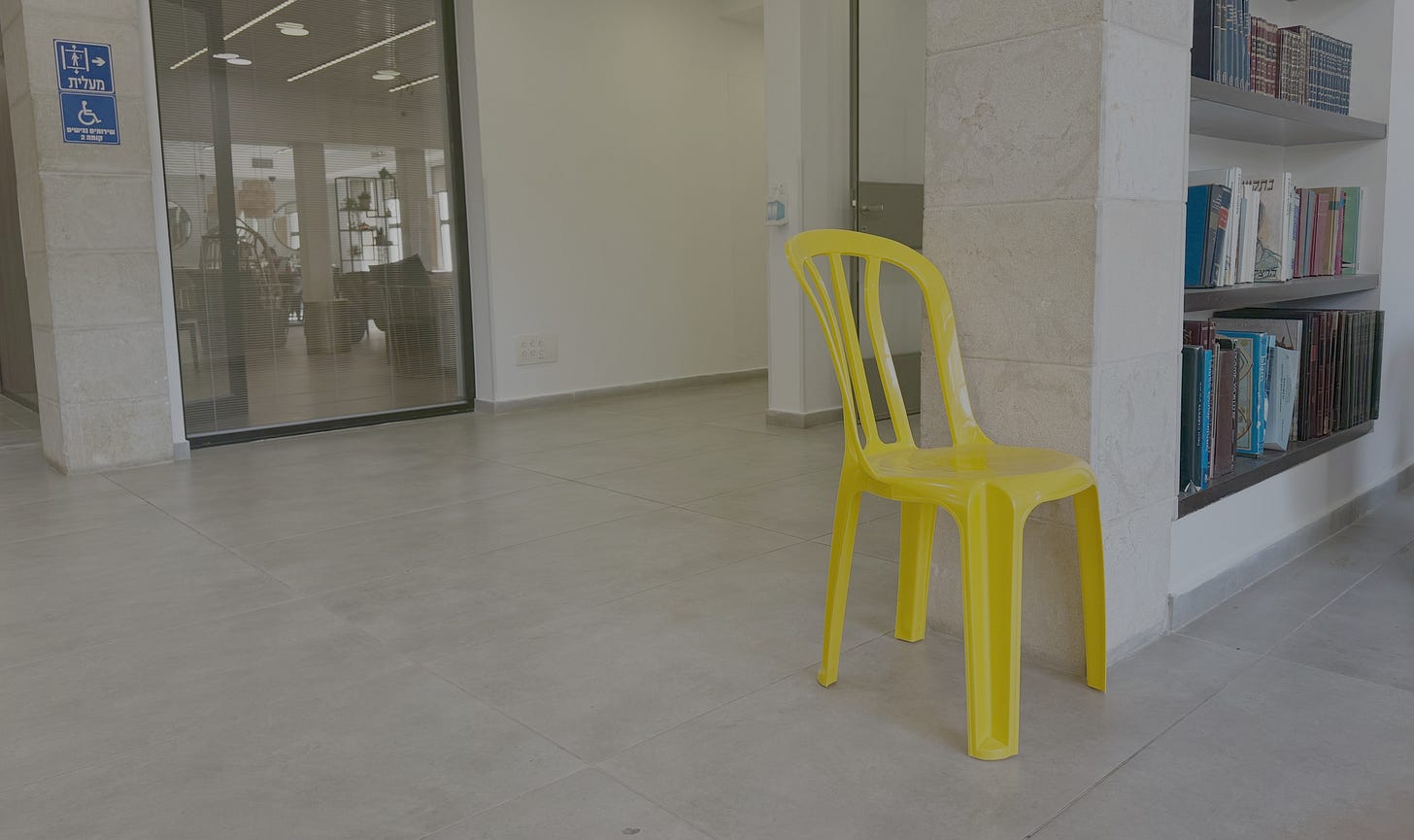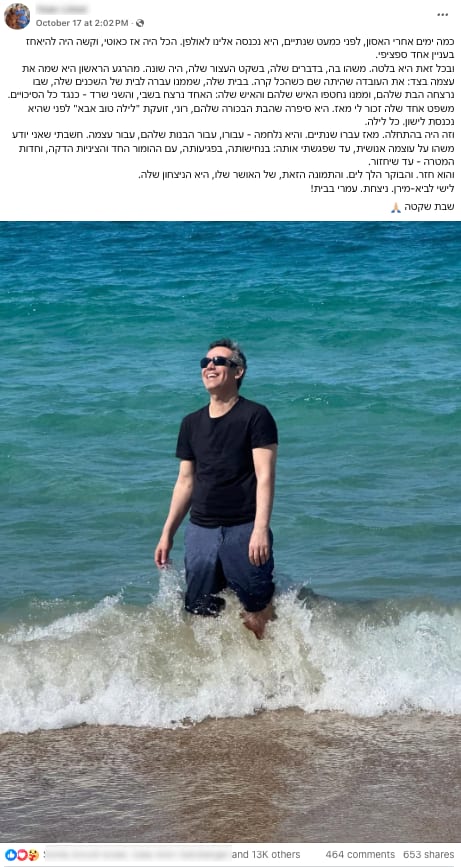"Better." That's what people now say when you ask them how they are.
Description
For two years, you asked people “How are you?” not because the question made any sense, but simply because that’s how we’re raised. But as soon as the question crossed your lips, you realized what an idiotic question it was. So people got used to shrugging, to rolling their eyes as if to say “how is anyone?”, or to saying “our inner circle is fine” (if it was)—because beyond that, very little was fine.
What do you say now? What are we supposed to feel?
Even a lonely yellow chair speaks volumes.
For two years, at Shalem College we had posters of the hostages on the wall facing the entrance as one entered. It’s down. There were posters of individual faces throughout, on yellow chairs as was customary across the country. Most of them are gone. But there are still bodies of Israelis that Hamas has not released, and for the families of those people, the agony continues.
So what sign or wording should we put on the chair? Where should it be placed? I saw a few of my colleagues deliberating that as I left the building for lunch. When I got back, it was sort of nowhere—I assume that they hadn’t yet decided. The poor, forlorn chair, out of place but still necessary, struck me as an apt metaphor for much that’s going on here.
The fact that the war has been declared “over” is of no consolation to the families of Maj. Yaniv Kula (26) and St.-Sgt. Itay Yavetz (21), who were killed yesterday in Gaza, apparently by Hamas operatives of one sort or another, apparently in the area over which Israel has control.
As the country watched with deep sorrow as the number of soldiers killed rose yet again, the diplomatic dance was disturbing in its own right. The news reported that the PM and ministers had ordered an immediate cessation of all humanitarian aid into Gaza. A few hours later, the Trump administration told them to back down, and the flow started again. To appease his right, Bibi had to act tough. To appease Trump, he had to undo everything he’d just done, and do nothing.
How long he can keep this dance going remains to be seen.
But as we’ll see below, the fact that Israel is actually making very few decisions is not lost on the sophisticated observers of what’s unfolding.
Today, a quick look a bit of Israeli social media, which captures the relief, the hope and the awareness that that “complete victory” that the PM promised … well, not so much.

A photo of Omri Miran, a hostage released last week, has taken Israel by storm. It’s appeared in the press (here in the Times of Israel, for example), as well as all over social media, including here.
This is the text above what is likely to become one of those iconic pictures of the end of the war.
A few days after the disaster, almost two years ago, she came into our studio. Everything was chaotic then, and it was hard to focus on any one thing.
And yet, she stood out. Something about her—her words, her restrained calm—was different. From the very first moment, she put herself aside: the fact that she was there when it all happened. In her own house, from which she had gone to her neighbors’ home, where their daughter was murdered, and from which her neighbor’s husband and her own husband were kidnapped—one murdered in captivity, the other surviving, against all odds.
One sentence of hers has stayed with me since. She said that their eldest daughter, Roni, calls out “Good night, Daddy” before going to sleep. Every night.
And that was at the beginning. Two years have passed since then. And she fought—for him, for their daughters, for herself. I thought I knew something about human strength, until I met her: in her determination, her vulnerability, her sharp humor and subtle irony, and her unwavering focus—until he would return.
And he did return. And this morning, he went to the sea. And this picture, of his happiness, is her victory.
LIshay Lavi-Miran—You won. Omri is home!
A quiet Shabbat. 🙏🏻

As political camps organize themselves for what is scheduled to be an election year, Former PM Naftali Bennett, who does not need to remind Israelis that he was not in charge when October 7 happened (and was barely in office long enough to have spaced much of the policy that led to October 7), has been staking out his turf as the bearer of hopeful tidings.
Bennett’s FB post from yesterday (don’t miss the detail that the young man in the orange shirt has gone through twenty-one surgeries since he was wounded):
<div class="ca






